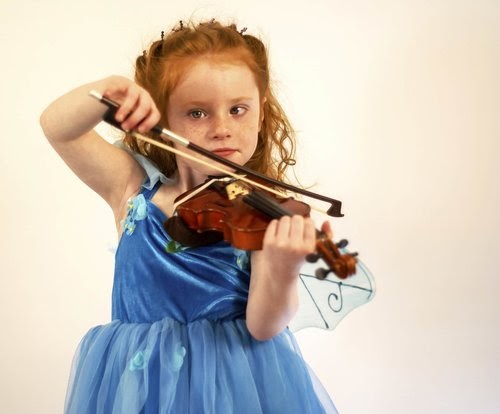Music is a phenomenal way to exercise the brain and stimulate learning from a young age. Music is used universally to help kids remember certain concepts, keep them thinking and encourages learning new things.
Children’s music lessons not only teach them how to play an instrument or sing but translate into various cognitive benefits that influence development. Overall, the benefits of learning music include increased IQ, memory, mathematical ability, and reading comprehension. Here are five ways music lessons will help your child be a better student.
Music Improves Children’s Listening Skills
Inside and outside of the classroom, listening is a major component to learning. Developing the ability to listen is a learned skill. Music lessons require intensive listening and strengthen this skill as if it were a muscle in the body. In music lessons, students are constantly encouraged to listen, whether they are trying to better understand their music teacher, working to perfect a note they are playing, or simply listening closely to music playing.
Persistence is Honed through Learning How to Play an Instrument
Let’s be real, it takes serious motivation, dedication, and consistent effort to play an instrument well. Music education is not easy, but those who are willing to put in the time and effort into practicing are successful. Persistence is defined by the commitment to a course of action over time, despite the difficulty. When learning to play the guitar or taking vocal lessons, children do not achieve perfection every time, but through practice and failure, persistence will build and ultimately lead your child to success in every aspect of life.
Kids Build Musical Skills Progressively
Music lessons are structured to improve the musician’s skill at every stage of learning, especially over time. Children’s ability to perform skills are built upon progressively. Music lessons have the power to leverage a student from unconscious incompetence to unconscious competence. They can take your child from lacking a skill and being unaware, to being so competent and intelligent within a skill that their ability to perform the skill becomes second nature to them. Music stimulates both hemispheres of the brain, which helps this process of moving from unconscious incompetence to unconscious competence impactful across all venues of learning.
Private Music Lessons Encourage Structure and Practice
Improvement takes practice and practice instills a progressive growth mindset in children. In order to get better, you have to be invested in whatever you are doing. Music lessons allow the time and space for creating passion and focused practice, which helps children establish structured habits and a toolkit to help them accomplish their goals.
Music Enhances Overall Learning Performance in the Classroom
Learning music builds a stronger neural connection, inspires creativity, ignites passion, and increases focus and dedication, all of which influence a child’s performance in an academic setting. Researchers believe that music has the ability to positively affect brain development in young learners. Integrating music lessons into a child’s life at the elementary level or before, encourages learning in all facets of their life.
The relationship between music lessons and brain growth, in regard to student learning and motivation within the classroom, has been studied and shows a proven connection. When determining how to engage children with music at various levels of development, in order to make them a stronger student, private music lessons are a great option. From Voice, Piano, Keyboard, Guitar, and Ukulele, Forevermore offers private music lessons at all levels for both children and adults.
